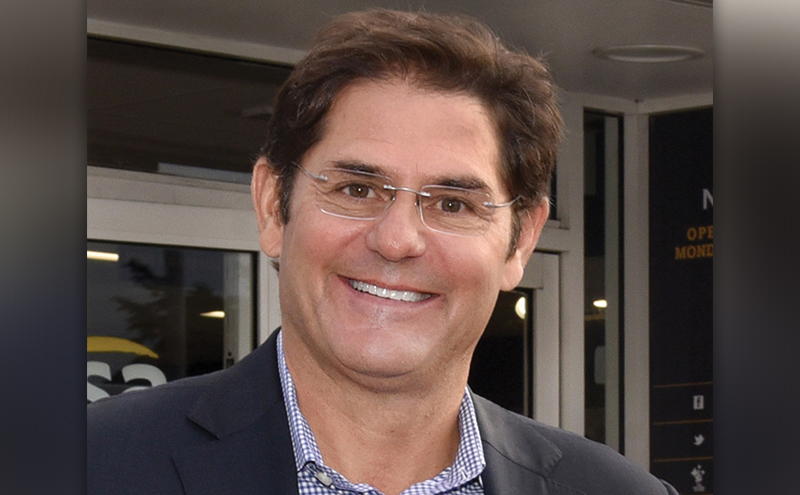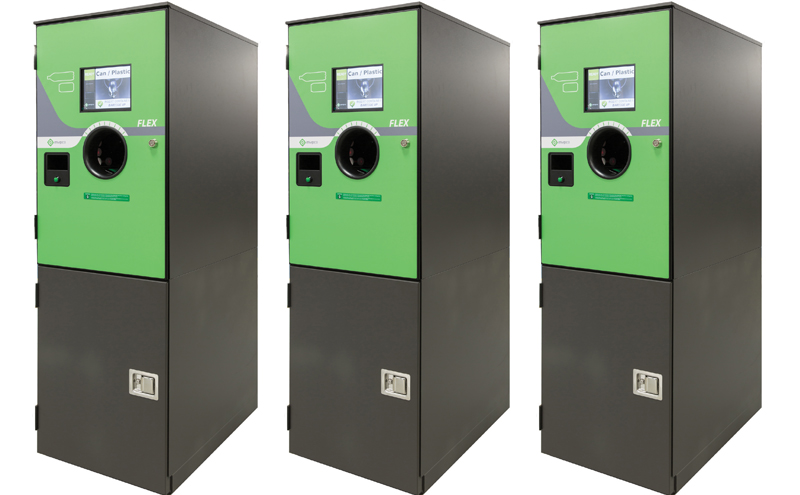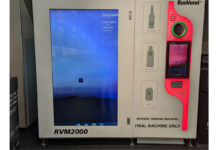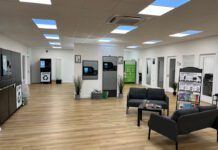Envipco president Robert Lincoln talks DRS

IF all goes to plan, legislation for DRS should appear before the Scottish Parliament this year, and retailers will finally have a clearer picture of what they’ll need to do when the new system comes into force.
Ahead of the publication of a report on last year’s public consultation on DRS — which should inform legislators on the best solution for Scotland — Scottish Grocer sat down with Robert Lincoln, president of reverse vending machine manufacturer Envipco.
Lincoln, whose firm is embarking on a reverse vending trial across three Scottish c-stores in partnership with the SGF, has been quick off the mark in reaching out to retailers.
The Envipco boss already has plans in the works for a showroom opening “as soon as possible” in Scotland and he believes his firm has the right kit to meet the needs of Scottish independent retailers.
“We make equipment of all sizes so you can get a lot of performance from the smallest footprint in store,” said Lincoln.

Envipco’s varied solutions range from the huge Envipco Quantum RVM — a solution more suitable to a supermarket site — down to the compact Flex machine, which Lincoln reckons would be ideal for a c-store site.
Standing 186.5cm tall, 61cm wide, and with a depth of 85cm, Envipco’s Flex RVM is comparable to a standard vending or coffee-to-go machine.
Based on his firm’s experience of other DRS systems operating across the world, Lincoln reckons the Flex should work well in the Scottish retail sector.
“If you look at Sweden and the US they do have quite a few small stores, but my observation in the UK and in Scotland is that it’s a very important segment.
“My observation is that Scotland is unique in the number of small retailers that would be confronted with taking packaging back,” he said.
Lincoln may believe he has the right kit, but as a nation making its first foray into modern DRS, how difficult will the task ahead be for retailers?
‘Not very’ would seem to be the answer, as Lincoln explained: “We bring all staff in, we do a presentation and we have a lot of material we leave behind on how to use equipment — but it’s very intuitive.
“It’s not terribly complicated, you open the machine up, you empty the bags and put the bin in. The machine is monitored using infrared, we know when it’s full, we know when the bin is in the proper position and the machine does a lot of self diagnostics, so it’s very easy to use.”
With plenty of experience to draw on, and capacity to manufacture 9,000 machines per year, Envipco is prepared for a roll out as soon as DRS goes live, according to Lincoln.
“We intend to have a dedicated team in Scotland to take care of the opportunity that’s here,” he said.













